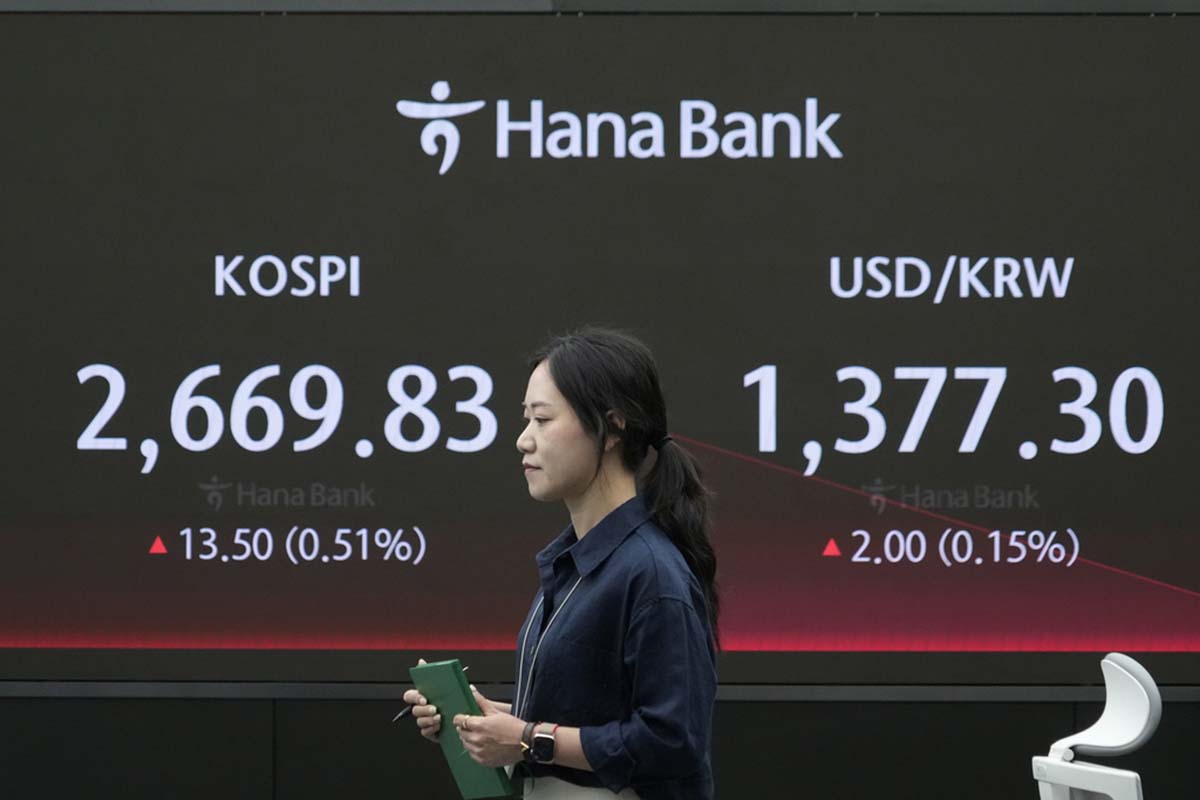
TOKYO: Global shares were trading higher on Monday, buoyed by optimism over the rally that concluded the week on Wall Street, although attention was focused on the Federal Reserve policy meeting scheduled for later this week.
In early trading, France's CAC 40 increased by 0.3% to 8,109.22, while Germany's DAX rose slightly by 0.2% to 18,198.89. Britain's FTSE 100 gained 0.5% to 8,176.36. US shares were poised to drift higher with S&P 500 futures up 0.2% at 5,144.00. Dow futures rose 0.2% to 38,509.00.
Sydney's S&P/ASX 200 added 0.8% to 7,637.40. South Korea's Kospi surged 1.2% to 2,687.44. Hong Kong's Hang Seng edged up 0.5% to 17,746.91, while the Shanghai Composite rose 0.8% to 3,113.04.
Trading was closed in Tokyo for a holiday, Showa Day. Japan has a series of holidays upcoming, known as the Golden Week, through Monday.
Stephen Innes, managing partner at SPI Asset Management, stated that the market mood was positive following last week's tech-driven rally on Wall Street.
The recent string of strong earnings has boosted market sentiment, but a potential risk factor is the declining Japanese yen, he added.
"Investors will be closely monitoring the latest developments in the remarkable and volatile decline of the Japanese yen against the US dollar and other major currencies," Innes said.
The yen reached a new 34-year low following the Bank of Japan's decision to keep interest rates unchanged on Friday. This was in line with expectations, but what was unexpected was the central bank's apparent lack of significant concern about the exchange rate, Innes added.
In currency trading on Monday, the US dollar edged up at one point to 160 Japanese yen levels, before falling sharply, to as low as 155 yen, sparking speculation of market intervention by the Bank of Japan. The central bank does not comment on such moves. The finance minister, when questioned by Japanese reporters, declined to comment.
"The medium-term impact of a currency intervention is not a given if the intervention is not backed by a more hawkish policy stance," said Ipek Ozkardeskaya, senior analyst at Swissquote Bank.
The dollar was trading at 155.89 yen in the afternoon. The euro was valued at $1.0724, up from $1.0699.
A weak yen can be beneficial for Japan's major exporters like Toyota Motor Corp. by enhancing the value of their overseas earnings when converted into yen.
However, a weak currency can harm the economy in the long run because it reduces purchasing power and potential wage growth. Japan imports almost all its energy.
Recent data on US inflation have led analysts to expect the Federal Reserve to keep rates on hold. Its main interest rate has been at the highest level since 2001. A report released on Friday showed inflation remaining high.
After initially indicating that three cuts to interest rates could occur this year, top Fed officials have since stated they could maintain its main interest rate high for a while to ensure inflation trends down toward the 2% target.
In energy trading, benchmark US crude fell 51 cents to $83.34 a barrel. Brent crude, the international standard, lost 73 cents to $88.77 a barrel.
By RSS/AP






